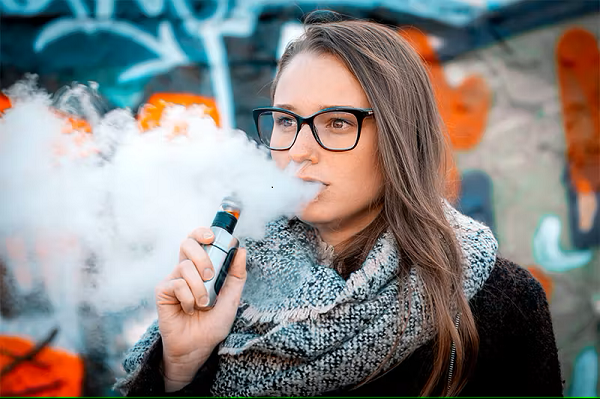| Section | Link to Section |
|---|---|
| FDA's Menthol Cigarette | The FDA's menthol cigarette prohibition might succumb to political pressure |
| FDA Refuses | The FDA refuses to approve menthol vapes to aid smokers |
FDA Commissioner Robert Califf is campaigning to persuade the White House to support a regulation prohibiting menthol cigarettes. According to a Politico report published today, Califf, who was nominated by President Joe Biden, has contacted friends and health professionals to "press their White House contacts over the status of the long-delayed policy."
If finalized, the regulation will prohibit the sale of menthol cigarettes and flavored tiny cigars in the United States. Califf has promoted the strategy, stating that it will minimize child smoking initiation and make it easier for older smokers to stop.
According to Politico, in addition to seeking outside support, Califf has "enlisted senior officials at the White House and the Health and Human Services Department to help advocate for the ban," as well as directly lobbying senior Biden aides.
Politico's description of Califf's "behind-the-scenes encouragement of outside pressure" as a "unconventional policymaking tactic" likely understates his activities. Backdoor lobbying by an appointed sub-cabinet agency official is unlikely to elicit anything more than intense irritation from any holder of the nation's highest office. Biden is already aware of Califf's stance on the proposed prohibition.
The FDA's menthol cigarette prohibition might succumb to political pressure
The FDA's menthol cigarette rule has been on hold since early December 2023, when the scheduled date was revised from 2023 to March 2024 in the White House's autumn regulatory agenda. (The 2024 date is an estimate, not a binding promise.) The final rule was forwarded to the White House Office of Management and Budget (OMB) for consideration in October.
The OMB's Office of Information and Regulatory Affairs (OIRA) examines all agency regulations before they are finalized and implemented. Between October and December, OIRA met with both opponents and supporters of the menthol cigarette law before making a final decision.
Opponents of the prohibition are concerned about police enforcement activities in minority communities, as well as an increase in clandestine sales. Proponents argue that a menthol ban would enhance public health, particularly among black Americans, but they discount concerns about uncomfortable police confrontations and a loss of important votes from furious menthol users.
During the OIRA review stage, White House personnel may have been frightened away from the menthol ban due to concerns about political consequences, including potentially reduced black voting in November 2024. Biden believes black votes are critical to his reelection hopes. (The vast majority of black smokers choose menthol cigarettes.)
"We're now in a political season, and it's only going to get tougher for them to do it," Campaign for Tobacco-Free Kids CEO Yolonda Richardson told Politico. "All delays help the tobacco industry. That only gives them more time to keep them on the streets and to addict children.”
However, fewer children use cigarettes these days. In 2023, just 1.6 percent of middle and high school students who responded to the National Youth Tobacco Survey reported smoking cigarettes (as little as one puff) in the previous 30 days—the third consecutive year the figure has stayed below 2.0 percent.
The FDA refuses to approve menthol vapes to aid smokers
The FDA stated its aim to prohibit menthol cigarettes in 2021, four years after President Trump's FDA Commissioner Scott Gottlieb mentioned a menthol ban in his "comprehensive" tobacco and nicotine strategy. In April 2022, the EPA produced a draft regulation for menthol cigarettes.
Under Biden, the FDA planned to revive a key component of Gottlieb's plan: a rule requiring very low nicotine concentration in cigarettes. However, menthol prohibition gained the most traction, because tobacco control groups have advocated for a ban on menthol cigarettes since the FDA Center for Tobacco Products (CTP) was established in 2009.
Gottlieb's "comprehensive plan" also includes plans to approve a range of vaping devices, which the former commissioner predicted would be approved as cigarette alternatives by many smokers. The FDA seems to believe that menthol-flavored vapes may be a useful weapon in preventing menthol consumers from switching to the black market if their favored smokes were prohibited.
Even during the first year of California's FDA leadership under Biden, when the agency issued marketing rejections for the majority of flavored vaping goods, menthol vapes and e-liquids mainly avoided the axe and remained under consideration.
That changed when Califf appointed former CDC administrator Brian King to run the CTP. Since King's appointment, the FDA has handled menthol vaping goods similarly to other flavors, refusing them based on polls indicating that kids prefer flavored products (vapers of all ages do). The EPA under Califf and King no longer appears to feel that menthol smokers facing a ban require appealing vaping alternatives.
Califf is a lifelong opponent of vaping. As Barack Obama's final FDA commissioner, Califf supervised the implementation of the 2016 Deeming Rule, which initially included an outright prohibition on flavored vape devices. Califf later complained that the White House Office of Management and Budget had deleted the ban from the final regulation.
Before his return to the FDA in 2021, Califf argued for a ban on all vape flavors, even proposing a prescription-only regime for vaping devices.
"The regulatory trifecta," Califf wrote in 2019, between his FDA stints, "would be to: 1) require the tobacco industry to lower the amount of nicotine in its products to subaddictive levels (if nicotine can be dialed up using irradiation and selective breeding, it can also be dialed down, even if the law forbids regulation that reduces the level to zero); 2) ban over-the-counter vaping products; and 3) support prescription vaping so that the 30 million current tobacco users.






